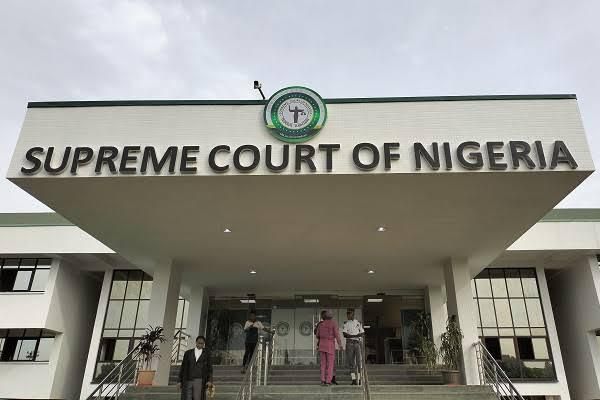Is Peter Obi running away from the LG financial autonomy conversation? [Editor's Opinion]
)
Almost a week after local government financial autonomy became a national topic, Peter Obi, the 2023 presidential candidate of the Labour Party, has yet to comment on the issue — and that’s quite unusual of him.
Following his impressive performance in the 2023 presidential election, Obi’s political relevance appreciates due to his consistent use of social media, especially Twitter, to express his views on national issues.
The former governor of Anambra State is not shy to express his opinion on political developments, government policies, and even courts’ pronouncements on national matters.
This is why his unusual silence on the Supreme Court's judgement on LG autonomy raises curiosity given the several viewpoints notable Nigerians, lawyers, and politicians have put forward on the conversation.
Both sides of the conversation
The Supreme Court ruling ordering the Federal Government to send monthly allocations to local government authorities directly from the federation account has been widely applauded as a move in the right direction.

Some political analysts and opposition politicians have also commended the judgement, hoping it would accelerate grassroots development and encourage youth participation in party politics at the grassroots level.
More importantly, many Nigerians praised the apex court verdict for removing the kleptomaniac hands of state governors from funds meant for local councils.
In his reaction to the development, former Vice President, Atiku Abubakar, described the ruling as a win for Nigeria.
“I align with the decision of the Supreme Court that the structure of the Nigerian government is portioned in three layers, and of these, the local governments should be centres of development,” Atiku said.
A professor of law and Senior Advocate of Nigeria, Chief Mike Ozekhome described the verdict as “a victory for our wobbling democracy.” In his view, the ruling was timely, courageous, and regenerative.
On the flip side, the sentiment that the ruling is the best thing to happen to Nigeria has been adjudged an exaggerated optimism.
Omoyele Sowore, the presidential candidate of the African Action Congress (AAC) in the 2023 election, believes LG autonomy won’t automatically translate to good governance and grassroots development.
According to him, if state governors continued to use their electoral machinery to conduct local government elections the judgement would be ineffective.
Airing the same line of argument, former Ekiti State governor, Ayo Fayose, said LG autonomy is counterproductive to the administration of states because nobody from the grassroots can become a local government chairman without the support of a governor.
The ex-governor explained that the oversight function of the State Houses of Assembly over local government councils would hamper the independence of local councils.
What’s Obi’s disposition to LG autonomy?
One of the major issues the Supreme Court ruling addressed is outlawing the appointment of unelected officials to run local government affairs by state governors.
Obi is on the list of governors who ruled their states for many years without conducting local government elections.
![Peter Obi [Getty Images]](https://image.api.sportal365.com/process/smp-images-production/pulse.ng/27072024/74b023ac-996e-4a92-bc7b-56e699294fd4)
This practice has been identified as one of the reasons development in local councils has remained stunted since 1999. Governors abuse their powers by using LGA funds and stooges to run grassroots affairs.
But with the Supreme Court ruling, state governors will no longer receive allocations on behalf of LGAs as the funds will be directly sent from the federation accounts to the accounts of the 774 local councils the Nigerian constitution recognises.
The goal is to ensure local councils are governed by elected officials, not caretakers appointed to do the bidding of state governors.
It’s not certain if Obi still subscribes to the idea of running LGAs through caretakers but it’s clear that local councils were non-existent during his administration in Anambra.
In 2012, Emeka Onuorah, a member of the All Progressives Grand Alliance (APGA) dragged Obi and seven others to court for not conducting local government elections after one Jezie Ekejiuba filed a suit against him at Awka High Court over the same issue.
Onuorah claimed he was among those who paid to contest for local council election but the election failed to hold after many years.
After seven years of ruling the state without local government authorities, Obi conducted the election a few months before the end of his administration.
Nine years later, Obi said he did not conduct LG elections until his last year in office because “of the many litigations that came in our way.”
Why is Obi silent about LG autonomy?
As stated earlier, Obi is very vocal about trending political issues, especially those that directly affect the common man on whom his political ideology is built.
Since the Supreme Court delivered the ruling on Thursday, July 11, the ex-governor has reacted to many trending topics including the Euro2024 final match between Spain and England except the LG autonomy conversation.
However, some Nigerians believe Obi chose to be silent for two reasons. According to them, it’s either because he does not want to commend the Federal Government for the initiative or because his administration in Anambra is guilty of the same allegation against incumbent state governors.
In any case, only Obi knows why he keeps mute on the LG autonomy topic.
)
![Aisha blows hot on Security forces; Y7ou won't believe what she said [VIDEO]](https://image.api.sportal365.com/process/smp-images-production/pulse.ng/17082024/1f976edf-1ee2-4644-8ba1-7b52359e1a8f?operations=autocrop(640:427))
)
)
)
![Lagos state Governor, Babajide Sanwo-Olu visited the Infectious Disease Hospital in Yaba where the Coronavirus index patient is being managed. [Twitter/@jidesanwoolu]](https://image.api.sportal365.com/process/smp-images-production/pulse.ng/16082024/377b73a6-190e-4c77-b687-ca4cb1ee7489?operations=autocrop(236:157))
)
)
)
)
)
)
)
)
)
)
)